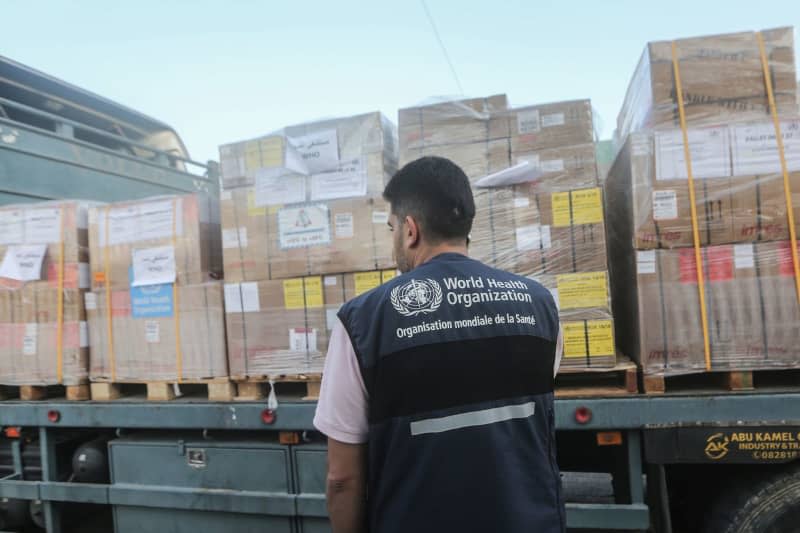WHO remains in the Gaza Strip despite the killing of aid workers

The World Health Organization (WHO) does not intend to abandon its risky medical efforts in the Gaza Strip, even after the recent deaths of seven humanitarian aid workers.
"We are here to stay and to deliver," said Rik Peeperkorn, the WHO representative for the Palestinian territories, at a press conference on Wednesday. There are currently around 17 Palestinian and seven international WHO staff working in the Gaza Strip.
Seven employees of the organization World Central Kitchen (WCK) were killed in an airstrike by the Israeli army on Monday. Israel's Chief of Staff Herzi Halevi described the fatal incident as a "grave mistake" that should not have happened.
WCK said it was temporarily halting its operations in Gaza, despite the enormous need.
Peeperkorn said in a video link from Jerusalem that UN vehicles in the Gaza Strip had also been affected by attacks in recent months.
This shows that agreements on safe passage for humanitarian aid workers in this conflict "do not work," he said.
Planned WHO aid missions to the devastated north of the Palestinian coastal strip were repeatedly rejected, delayed or obstructed by the Israeli side, Peeperkorn said.
WHO Emergency Coordinator Mike Ryan pointed out that such agreements between warring parties and aid organizations are common in conflict situations.
"We've been doing this for decades," he said in Geneva.
"A responsible military operation will always seek to protect civilians and ensure that they have access to the basic necessities of life: shelter, food, water and medicine," he emphasized.

